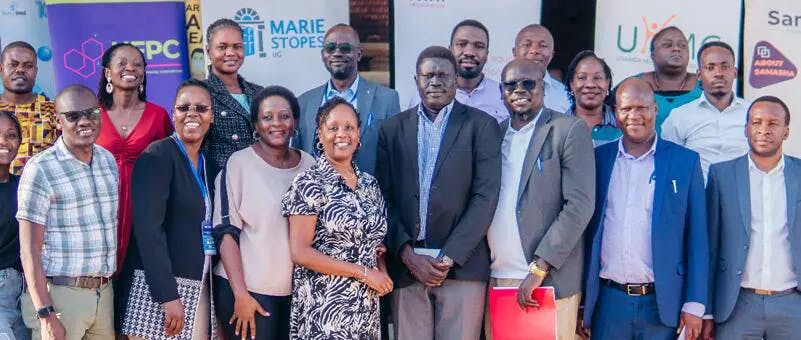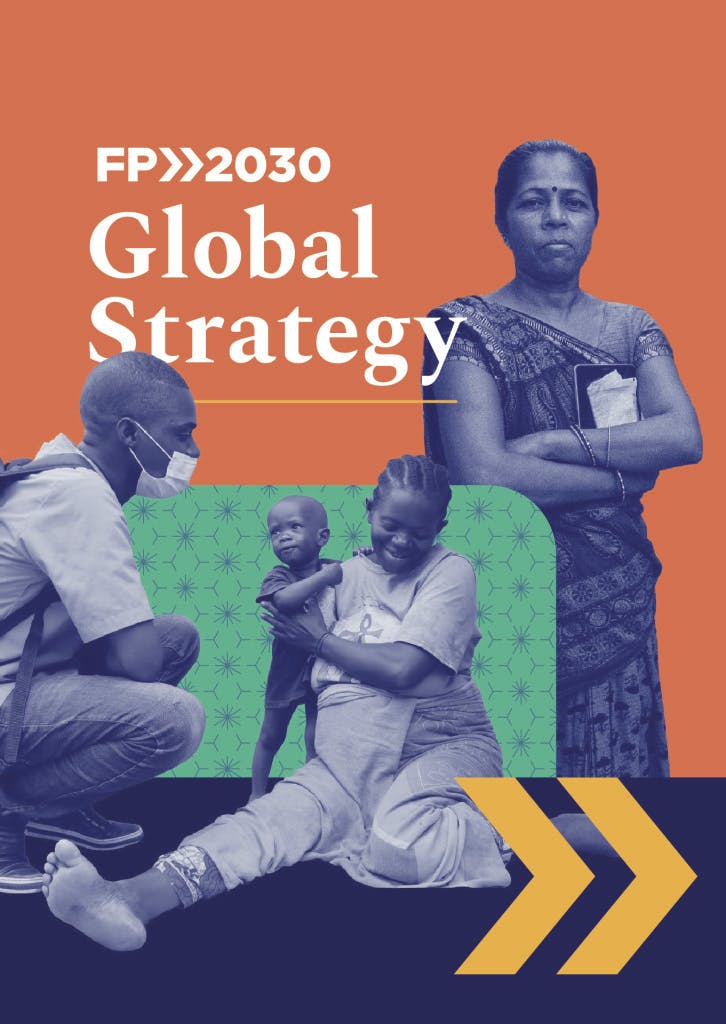A GLOBAL PARTNERSHIP LED BY LOCAL PRIORITIES
FP2030’s strategy for ensuring family planning for all

The FP2030 Strategy
FP2030 has always been propelled by a resolute determination to advance access to voluntary, rights-based family planning worldwide. We remain unwaveringly committed to this core mission, which dates back to our founding in 2012 as a global partnership centered on family planning.
The new strategy frames our work using seven carefully constructed priorities. Four priorities represent direct objectives we hope to accomplish, while three define cross-cutting tools we will use to achieve these objectives.
The priorities include:
- Advance recognition of family planning by expanding partnerships and leveraging the 2030 agenda. Building on more than a decade of achievements, we will continue to work to normalize access to family planning for everyone, everywhere. This means leveraging our global network of family planning advocates while building bridges to movements advancing other 2030 goals such as maternal health, universal health care, and climate change, to broaden our impact.
- Promote increased, diversified, and efficient use of sexual and reproductive health financing to ensure sustainability. Investments in family planning pay back many times over for households, communities, and nations, yet too often women bear the financial burden of paying for contraception themselves. We will work to increase financing for family planning by engaging with both traditional and non-traditional sources of funding, from national governments to the private sector to high-net-worth individuals.
- Prioritize the rights of adolescents and youth and of marginalized and stigmatized groups to improve their sexual and reproductive health outcomes. Young people stand to reap significant benefits from better family planning services, which can improve their lives today, protect the health of the adults they will become, and stabilize and support the families they may choose to form – and this has compounding positive effects for communities and countries. If family planning programs are not made more accessible to more marginalized or stigmatized groups like LGBTI people, people with disabilities, and unmarried couples, they will continue to serve fewer people, and our global community will suffer the consequences. We commit to fostering partnerships that elicit and value these voices, as they are the best experts in building programs that work for them.
- Support scale-up of evidence-based practices to accelerate impact. FP2030 has taken over coordination of the High Impact Practices for Family Planning, working to gather the best evidence for what works to increase the use of voluntary, rights-based family planning. We will continue to promote the use of these evidence-based, scalable, and sustainable approaches to increase contraceptive use in a wide variety of settings and with diverse groups of people.
- Resource local actors to solve local issues (cross-cutting priority). Even as we embrace and cultivate country leadership, we also recognize the diversity of needs within countries. Since 2014 we have provided direct technical and financial support to local organizations advancing sexual and reproductive health at the community level. We intend to sustain these efforts, intensify our support to local women- and youth-led organizations, and foster movement-building across communities, countries, and regions.
- Leverage and expand the use of data for evidence-informed decision-making (cross-cutting priority). Measurement and accountability have been central to FP2030’s work from the beginning. We will continue to collect and share data related to family planning, expanding our scope to explore the use of qualitative evidence. We will also seek new, better indicators to gauge the needs of vulnerable, marginalized, and underserved groups.
- Improve the performance of our people, systems, and processes to drive results (cross-cutting priority). Effective systems and empowered, supported people are essential to our ability to execute this strategy and achieve our goals. Particularly during this time of transition from a U.S.-based secretariat to a dispersed global support network, we will invest in resources and tools to ensure that each of our diverse people can be world class leaders in their roles.


Guided by these priorities, FP2030 is forging a path toward a future where everyone, everywhere, has the freedom and ability to make their own informed decisions about using modern contraception and whether or when to have children, to lead healthy lives, and to participate as equals in society and its development.
We’re dedicated to advancing the rights of people everywhere to access reproductive health services safely & on their own terms.
Get Involved
FP2030 | United Nations Foundation
1750 Pennsylvania Ave NW Suite 300 Washington, DC 20006
FP2030 is a diverse, inclusive, and results-oriented partnership encompassing a range of stakeholders and experts with varying perspectives. As such, the views expressed and language used on our website do not reflect those of all members.

This website is made possible by the support of the American people through the United States Agency for International Development (USAID). The contents are the sole responsibility of FP2030 and do not necessarily reflect the views of USAID or the United States Government.








